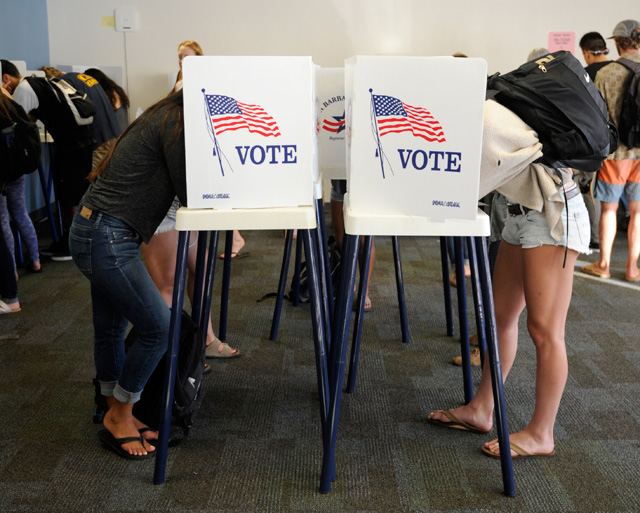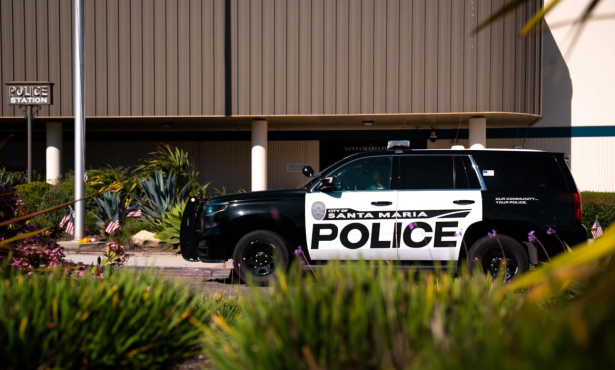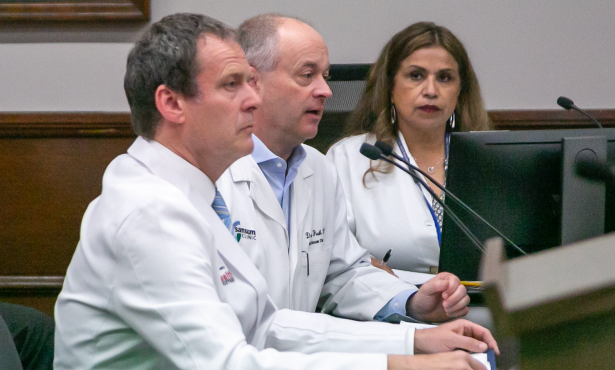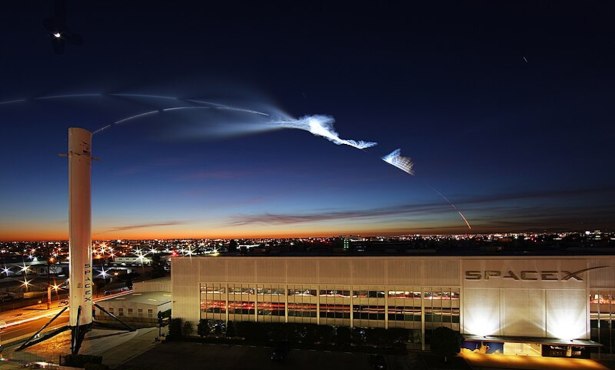Ballots Drop, and So Does Fake News
Santa Barbara County Participated in Crisis Drills

Mail-in ballots dropped into the postal system on Tuesday, and California Secretary of State Alex Padilla held a press conference to announce the steps the state was taking to ensure the November 6 election would be untainted by foreign influence. His office had conducted a “tabletop” exercise for elections officials statewide that presented scenarios like internet disruption or rumors of long lines. Santa Barbara County Elections czar Joe Holland was among the participants.
A 16-year veteran of county elections’ corner office, Holland was sanguine about the exercises, stating that elections predated websites, and lines of communication were well-established in the county. But the hour-long drill did “force you to think of different scenarios for potential crises.” All Santa Barbara polling places were assigned cell phones, he said, and field supervisors toured each of them throughout Election Day. He reassured that all of California used paper ballots per the state election code. “I’ve been adamant that they remain,” he said. “What’s nice about paper ballots is that you can always recount them.” In fact, ballots in every race in one percent of randomly chosen county precincts are re-counted by hand before the election is certified, he said. In all his years, he’d yet to see an error found.
As for cybersecurity, which was the theme of Padilla’s news conference, Holland said he’d had Homeland Security in for a visit last spring to see if they could hack into Santa Barbara’s system. The ballot-counting apparatus has no link with the internet — and is therefore hack-proof — but voter registration and other elections information are freely available on the web. He said the Homeland hackers could not get into the system, but when given employee access, they were able to penetrate a couple of places. He declined to discuss them but said they’d been fixed.
Padilla emphasized the Russian disinformation campaign that had occurred in the run up to the 2016 election, saying no breach had been made into California’s elections system. UCSB has been studying the disinformation threat, led by Professor Joe Walther. At his graduate students’ “Citizen’s Guide to Fake News” website, Walther said they point to first-hand accounts to illustrate what has been found to be fake news and tips on how to spot it, among them to fact check at trusted sites or compare similar stories before circulating headlines to friends.
Recently, the Russian activity has been to divide the electorate against those who currently hold power, much as it had in the 2016 election, Dr. Walther said. “Last time, the preponderance had been conservative. The latest round is anti-establishment, which is now Trump. It’s meant to disrupt, not promote an agenda. They’re provocateurs,” he said.
According to Padilla, robust citizen voting is the best way to combat any attempted interference. Citizens can register through October 22 at registertovote.ca.gov, and provisional ballots will be available at all polling stations.



